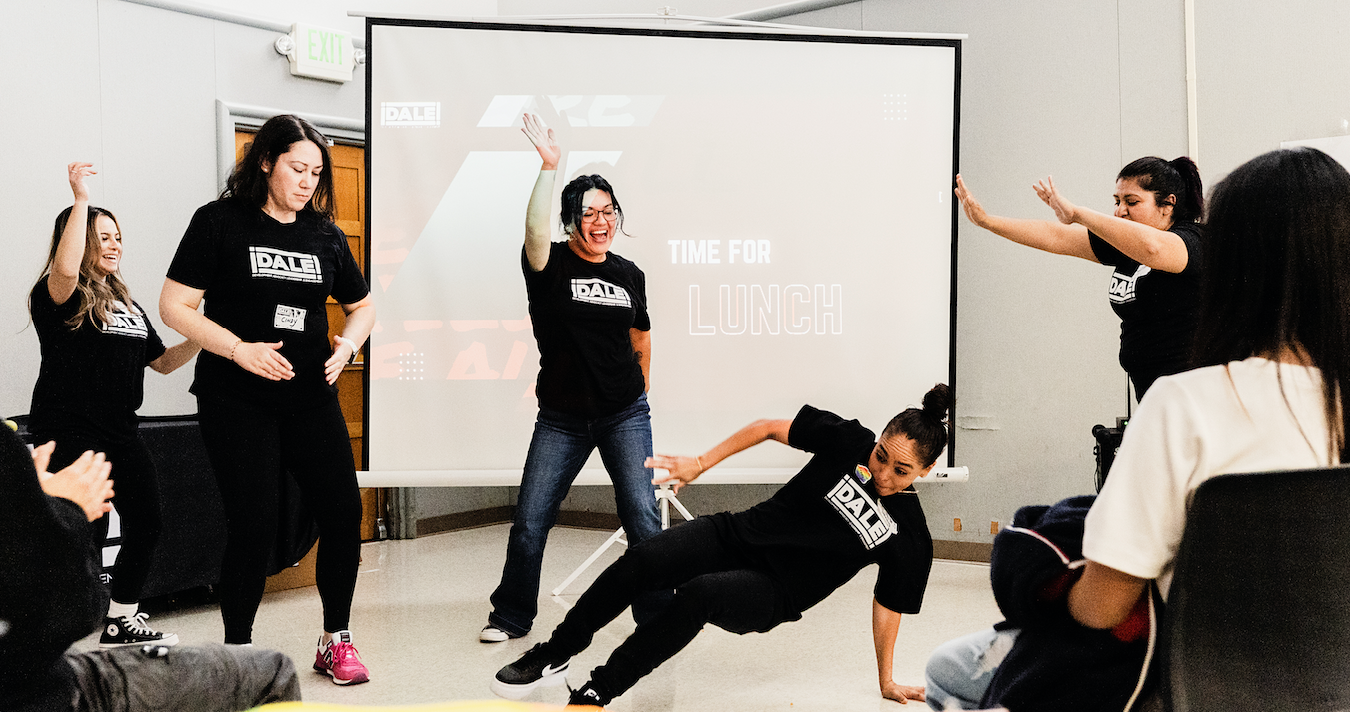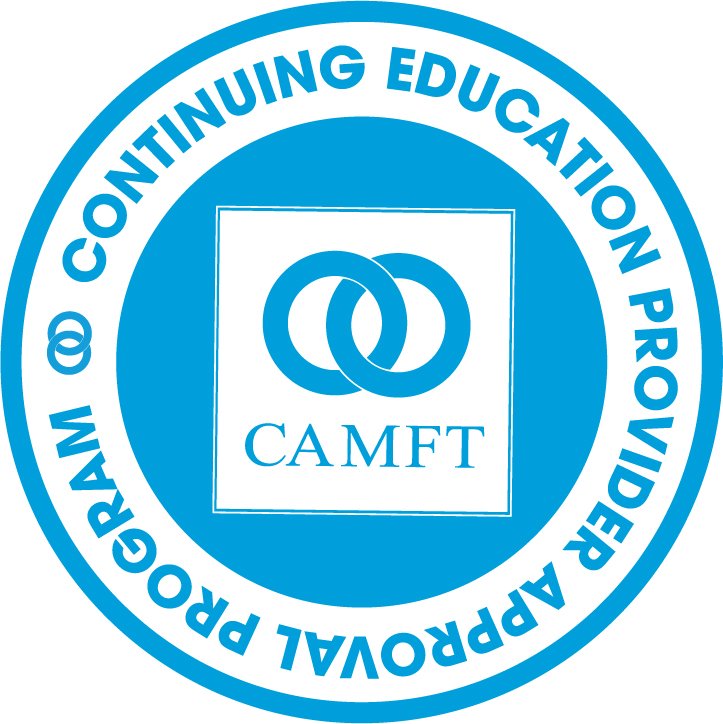
On the Margins is committed to providing programs that are accessible, welcoming, and inclusive of our community. To request accommodations like American Sign Language (ASL), Spanish or another language interpreter, please email contactus@onthemargins.us at least three weeks before the event.
WORKSHOP OPTIONS
-
Compassion fatigue, burnout and vicarious trauma can be experienced by those who bear witness to others’ stress and trauma. The symptoms of compassion fatigue can be hard to recognize and require adequate support and care for those experiencing it. This experiential workshop aims to bring awareness to the toll it takes to work in a helping profession and provide opportunities for reflection and self care planning. Through radical self care, participants will be able to identify techniques to manage stress and support their own wellness and well-being.
Learning Objectives:
Understand the symptoms, effects and risk factors of compassion fatigue
Recognize personal and systemic barriers that contribute to compassion fatigue; and
Create a self and collective care plan to support future work
-
The intersection of white supremacy and capitalism have created a fallacy that productivity is the true measure of success. This ideology leads to burn out, imposter syndrome and moral injury. This experiential workshop builds upon The Cost of Caring Part I, to help participants deepen their understanding of the impact of systems of oppression on their well-being and to develop strategies for collective and community care. Participants will learn strategies to support others and minimize burnout.
Learning Objectives:
1. Understand the symptoms and effects of imposter syndrome and moral injury.
2. Strategize interventions for collective and community care.
3. Create a collective care plan to support future work.
COMPASSION FATIGUE, BURNOUT, AND REST AS RESISTANCE
-
White supremacy is a political-economic social system of domination and it is based on the historical and current accumulation of structural power that privileges, centralizes, and elevates white people as a group (Robin Di Angelo, 2011). This presentation facilitates discussions on the dominant order of our social structure and encourages us to: (a) consider possible resistance strategies, (b) freedom dream, and (c) struggle to co-create new social systems where we can all be free. The objectives of this presentation are to:
Reflect on the dominant order of our social structure.
Consider possible resistance strategies to disrupt the dominant social structure in our environment.
Freedom dream to radically imagine a more equitable and anti-racist society.
-
Our body cares about safety and survival. It dislikes when something happens to it that is too much, too fast, too soon (Resmaa Menakem, 2017). Racial trauma refers to the mind, body, and spirit injuries caused by encounters with racial bias, ethnic discrimination, racism, and hate crimes within a system of white supremacy. Trauma can damage the genes in our cells and our communities and that damage can be passed down from parent to child and from the child to their child. The objectives of this presentation are to:
Define trauma and race based traumatic stress.
Reflect on the relationship between racial trauma and white supremacy.
Discuss the clinical implications of not addressing racial trauma.
Consider possible healing strategies to work through racial trauma.
-
This presentation defines power, advantage and oppression and challenges participants to:
Reflect on how power and advantage show up for them personally.
Identify what power is and how it shows up in society.
Learn new ideas and perspectives on power sharing.
Explore different ways to encourage a shift in power dynamics.
-
Implicit bias trainings are multiplying, yet few rigorous evaluations of these programs exist. To date, none of these interventions have been shown to result in permanent, long-term, sustained and meaningful changes in behavior. Even worse, there is consistent evidence that one-off or lukewarm implicit bias and diversity trainings can actually induce anger and frustration among participants. This is because traditional implicit bias trainings do not examine the effect that dominant social structures have on our internalized frameworks. In order for implicit bias trainings to have meaningful impact, we must first examine our current and historical societal structures and acknowledge that white supremacy culture has shaped our world views, which leads to bias.
This workshop will:
Discuss how structures of power and oppression influence our unconscious minds, which guides our behaviors.
Introduce insights about how our minds operate to help us understand the origins of implicit associations.
Create conditions where participants can uncover some of their own biases and learn strategies for addressing them.
-
This presentation explains the interaction between social structure and implications for housing.
WHITE SUPREMACY, RACIAL TRAUMA, AND COLLECTIVE LIBERATION
-
This interactive workshop will provide a theoretical framework for understanding how exposure to trauma during the first 5 years of life impacts families and communities. This workshop will include an overview of basic concepts including complex trauma and community trauma. Participants will reflect on how complex trauma manifests in young children and across the family system. We will also explore how trauma manifests on a collective level across communities that have been disproportionately impacted by systemic racism. Opportunities for self reflection and community building will be interwoven throughout. Participants will learn about trauma-informed tools for navigating complex trauma with young children.
LEARNING OBJECTIVES:
1.Create common language and common understanding about how trauma can affect health, behavior, and relationships, as well as how trauma can affect communities as a whole.
2.Identify at least 2 manifestations of trauma across individual, familial, and collective contexts.
3.Practice utilizing at least one tool for navigating trauma with young children
-
Zero to Three (ZTT) defines Infant and Early Childhood Mental Health (IECMH) as the developing capacity of the child to form close relationships, manage and express emotions, and explore their environment and learn within the infant’s family, community, and cultural context (Zero to Three Early Childhood Research and Policy Report, 2005). IECMH practitioners and scholars recognize that early relationships are the foundation from which a child’s emotional, cognitive and social development occurs across the lifespan. But what happens when early relationships are wounded by the violence of systemic, intergenerational, and ongoing racial trauma? How do IECMH providers continue to support families while they themselves are also impacted by the violence of racial trauma? This training will provide an opportunity for participants to reflect on the manifestations of racial trauma and white supremacy culture in the field of IECMH. Together, we will explore manifestations of racial trauma and white supremacy culture within the field of IECMH and the impact of systemic racism on providers and the families they serve.
Learning Objectives:
1.Create a safe space for participants to develop critical consciousness about the impact of racial trauma and systemic racism on their relationships within the workplace and on the field of IECMH as a whole.
2.Enhance reflective capacity about the impact of early experiences and racial trauma trauma on young children, the parent-child relationship and providers in the field of IECMH.
3.Participants will be able to identify ports of entry for collective healing.
-
The impact of complex trauma on the perinatal period and child development has become an increasingly important topic over the past decade, underscoring the need for social services providers to learn about the foundations of psychosocial development and strategies to facilitate healing for impacted families. Participants will also explore the impact of the compounding traumas of COVID-19 and collective traumas on children, families, and pregnant people. Sessions will build on one another by following the stages of development and immigration beginning with the first trimester of pregnancy and ending with the first three years of life.
Learning Objectives:
1.Become familiar with child development during the perinatal period and first year of life
2.Grapple with the impact of trauma exposure on child development and the parent-child relationship
3.Explore and practice strategies for dyadic and collective healing
TRAUMA HEALING AND CARE IN INFANT AND EARLY CHILDHOOD
-
The trimesters of pregnancy, like the stages of immigration trauma, are periods of immense physical and psychological disequilibrium. For pregnant people with histories of immigration trauma, these anxieties are exacerbated by xenophobic, oppressive, and violent sociopolitical conditions. In the United States, rates of preterm labor, fetal mortality, and postpartum depression are on the rise among Black and Indigenous People of Color (BIPOC) and within immigrant communities. The ongoing threat of COVID-19 has only exacerbated these alarming inequities and risk factors for birthing people of color. Given these heightened risk factors and alarming realities, there is an even greater need for bilingual and bicultural providers to explore these complexities and create spaces for dyadic healing. This training will invite participants to reflect on the intersections of immigration trauma and perinatal mental health. Strategies for healing in relationship during the perinatal and postnatal period will be explored using a de-identified clinical vignette.
LEARNING OBJECTIVES:
1.Participants will be able to identify the core developmental fears associated with the perinatal period and first five years of life.
2.Participants will be able to identify at least 2 parallels between the stages of immigration trauma and the stages of intrapsychic development that occur during the prenatal period.
-
Latina women, especially low-income, afrolatina, indigenous, and undocumented women, exhibit some of the highest rates of preterm birth, infant mortality, maternal mortality, and postpartum depression in the United States. Especially during the COVID-19 pandemic, undocumented and newly arrived Latina women have faced alarming rates of perinatal losses, traumatic births, and subsequent psychological distress. The prenatal and postpartum periods can be particularly difficult for women with histories of immigration trauma, domestic violence, or perinatal losses. This training will illuminate the parallels between immigration trauma and the development of maternal identity during the prenatal and postnatal period. Tools for collective healing and healing within the parent-child relationship will be explored.
-
The history of parent-child separations in the United States is a long and painful one. In recent years, we have seen a dramatic increase in parent-child separations and the detention of Latinx and Afro-caribbean parent-child dyads at the US/Mexico border. Forced separations from a primary caregiver during the first 5 years of life can have detrimental consequences for the social, emotional, and relational development of young children. It is critical for early childhood and migrant justice advocates to understand how anti-immigrant policies exacerbate core developmental fears of separation among young children and their caregivers. More importantly, early childhood practitioners are needed on the front lines of the struggle for migrant justice to support families impacted by forced separations. Opportunities for community healing, mutual aid, and advocacy will be discussed.
Learning Objectives:
1.Strengthen participants understanding about early childhood trauma
2.Identify the stages of immigration trauma
3.Discuss strategies for working with families Impacted by immigration related parent-child separations
THE BORDER AN OPEN WOUND, IMMIGRATION TRAUMA, & MIGRANT JUSTICE
-
White supremacy is built on land expropriation, genocide, racialized expropriation, and gender expropriation. The system of white supremacy seeks to oppress, harm, and erase those who exist between and beyond gender, sex, and sexuality binaries . This presentation provides an overview of gender, sexual identity, sex, and gender expression.
Defines gender as a person’s innermost concept of self as masculine, feminine, a blend of both, another gender(s), or none. It also explains that gender is not always congruent with biological sex or gender assigned at birth.
Defines sexual identity/sexual orientation as an individual's enduring physical, romantic, emotional, and/or spiritual attraction to members of the same and/or different sex and/or gender.
Defines sex as a medical term that refers to genetic, biological, hormonal, and/or physical characteristics that are used to assign someone as male, female, or intersex at birth. Due to the infinite ways that humans grow and develop, sex is not a binary.
Defines gender expression as a person’s appearance, behavior, mannerisms, and interests (e.g., clothing, hair style, nail polish, gestures and mannerisms).
Offers opportunities for attendees to reflect on the question: What does it mean to move beyond the gender, sex, and sexuality binaries?
-
This workshop explores the biological, psychological and cultural aspects of human sexuality. Special attention will be given to diverse cultural practices and customs, highlighting the fact that the world of human sexuality is rich in cultural and subcultural diversity.
Attendees will be asked to:
1. Reflect on their own sexual philosophies.
2. Consider the vast amount of sexual information they receive from the media, from friends and acquaintances, and from their families.
3. Think critically about the (a)sexual world and their place in it.
GENDER, SEXUALITY, AND DISRUPTING BINARIES & HETERONORMATIVITY
-
This three hour experiential workshop will provide a holistic view of crisis response and de-escalation approaches that seek to assist participants in supporting their communities. It will offer trauma sensitive practices that seek to humanize crisis response services. Participants will be asked to center trauma and community service as organizing principles. By the end of this workshop, participants will:
Understand the impact of trauma and how it manifests behaviorally in our communities
Learn crisis intervention and de-escalation techniques to better manage emergencies
Understand the symptoms, effects and risk factors of compassion fatigue
Create a self and collective care plan to support future work
CRISIS INTERVENTION & DE-ESCALATION
HEALING JUSTICE, THE MEDICAL INDUSTRIAL COMPLEX, AND COLLECTIVE LIBERATION
-
Healing Justice is a political-spiritual framework that aims to interrupt and transform historical cycles of violence and trauma within our communities. It aims to create collective models of care and safety in order to build power to resist the medical industrial complex and the criminalization of our ancestral traditions.
Conceived by Cara Page and the Kindred Southern Healing Justice Collective in 2005, Healing Justice is rooted in disability justice, environmental justice, reproductive justice, transformative justice, and harm reduction, as well as traditions of resistance and resilience of Black, Indigenous and People of Color, people living in poverty, disabled people, womxn, femmes, and Queer, Trans and Intersex people.
Learning Objectives:
Understand the core concepts of a Healing Justice framework
Consider how to apply Healing Justice principles in our work
Learn strategies to intervene on generational trauma in order to build collective power toward resistance
On the Margins is approved by the California Association of Marriage and Family Therapists to sponsor continuing education for mental health practitioners. On the Margins maintains responsibility for continuing education programs and their content.







